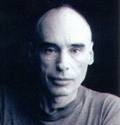The Patriot (play): Difference between revisions
No edit summary |
No edit summary |
||
| (5 intermediate revisions by 2 users not shown) | |||
| Line 1: | Line 1: | ||
====Date: [[:Category: | ====Date: [[:Category:1982|1982]]==== | ||
====Region: [[:Category:Middle East|Middle East]]==== | |||
====Subject: [[:Category:Religious|Religious]] [[:Category:Politics|Politics]]==== | |||
====Medium: [[:Category:Theater|Theater]]==== | |||
====Medium: [[:Category: | |||
---- | ---- | ||
[[File:Levin.jpg|left]] | |||
'''Artist:''' Hanoch Levin | '''Artist:''' Hanoch Levin (1943 - 1999) | ||
'''Confronting Bodies:''' The Israeli Theater and Film Censorship Board, the National Religious Party (Hetzofeh branch), and ultra-Orthadox Jews. | '''Confronting Bodies:''' The Israeli Theater and Film Censorship Board, the National Religious Party (Hetzofeh branch), and ultra-Orthadox Jews. | ||
'''Date of Action:''' 1982 | |||
''' | |||
'''Location:''' Israel | '''Location:''' Israel | ||
'''Description of Artwork:''' ''The Patriot'' was called into question over it's story involving an Israeli who wants to emigrate to America. The American consul forces him to do things such as spit on his own mother and torture an Arab boy and murder him to prove his loyalty to Israel. One scene that found particular resistance involved him torturing the Arab boy using Sabbath candles. The play harshly satirizes and calls into question Orthodox rituals. <P> | |||
'''Description of Artwork:''' | |||
'''The Incident:''' After complaints from the minister of the interior and the National Religious Party, the Israeli Theater and Film Censorship Board ordered it banned in 1982. It was not even given the opportunity for cuts. <P> | '''The Incident:''' After complaints from the minister of the interior and the National Religious Party, the Israeli Theater and Film Censorship Board ordered it banned in 1982. It was not even given the opportunity for cuts. <P> | ||
'''Results of Incident:''' In response, two members of parliament prepared a bill against art censorship, saying it was only required in cases of slander. Unions of artists and writers also staged rallies, demanding that the censorship board be abolished. <P> | '''Results of Incident:''' In response, two members of parliament prepared a bill against art censorship, saying it was only required in cases of slander. Unions of artists and writers also staged rallies, demanding that the censorship board be abolished. <P> | ||
After this, the censorship board gave the play another chance, provided it would cut the scene with the Shabbat candles, in addition to a few others. <P> | After this, the censorship board gave the play another chance, provided it would cut the scene with the Shabbat candles, in addition to a few others. It played to sold-out houses in | ||
Tel Aviv. <P> | |||
'''Source:''' Censorship: A World Encyclopedia. Ed. Derek Jones. Chicago; London: Fitzroy Dearborn, 2001. | '''Source:''' Censorship: A World Encyclopedia. Ed. Derek Jones. Chicago; London: Fitzroy Dearborn, 2001. | ||
[[Category:1982]] | |||
[[Category:1980s]] | |||
[[Category: | [[Category:20th century]] | ||
[[Category: | [[Category:Middle East]] | ||
[[Category:Religious]] | [[Category:Religious]] | ||
[[Category:Theatre]] | [[Category:Theatre]] | ||
[[Category:Hanoch Levin]] | [[Category:Hanoch Levin]] | ||
{{DISPLAYTITLE:<span style="font-style: italic;">The Patriot</span> (play)}} | |||
{{DEFAULTSORT:Patriot, The (play)}} | |||
__NOTOC__ | __NOTOC__ | ||
Latest revision as of 21:23, 14 February 2012
Date: 1982
Region: Middle East
Subject: Religious Politics
Medium: Theater
Artist: Hanoch Levin (1943 - 1999)
Confronting Bodies: The Israeli Theater and Film Censorship Board, the National Religious Party (Hetzofeh branch), and ultra-Orthadox Jews.
Date of Action: 1982
Location: Israel
Description of Artwork: The Patriot was called into question over it's story involving an Israeli who wants to emigrate to America. The American consul forces him to do things such as spit on his own mother and torture an Arab boy and murder him to prove his loyalty to Israel. One scene that found particular resistance involved him torturing the Arab boy using Sabbath candles. The play harshly satirizes and calls into question Orthodox rituals.
The Incident: After complaints from the minister of the interior and the National Religious Party, the Israeli Theater and Film Censorship Board ordered it banned in 1982. It was not even given the opportunity for cuts.
Results of Incident: In response, two members of parliament prepared a bill against art censorship, saying it was only required in cases of slander. Unions of artists and writers also staged rallies, demanding that the censorship board be abolished.
After this, the censorship board gave the play another chance, provided it would cut the scene with the Shabbat candles, in addition to a few others. It played to sold-out houses in Tel Aviv.
Source: Censorship: A World Encyclopedia. Ed. Derek Jones. Chicago; London: Fitzroy Dearborn, 2001.
